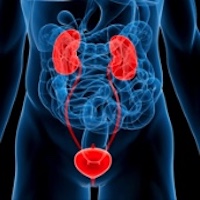Comparison of penile prosthesis types' complications: A retrospective analysis of single center

Accepted: September 1, 2019
All claims expressed in this article are solely those of the authors and do not necessarily represent those of their affiliated organizations, or those of the publisher, the editors and the reviewers. Any product that may be evaluated in this article or claim that may be made by its manufacturer is not guaranteed or endorsed by the publisher.
Authors
Objectives: The aim of this study was to compare clinical outcomes and complication rates associated with semirigid (malleable) and inflatable penile prostheses (PPs) and investigate the factors that influence these complications. Material and methods: The records of 131 patients who had undergone penile prosthesis implantation (PPI) in our clinic due to erectile dysfunction (ED) between January 2010 and March 2019 were retrospectively reviewed. The initial surgery included 116 primary implants and 15 men had two revision operations. Patients were assigned to two groups as semirigid (malleable) PPI (group 1) and inflatable PPI (group 2) patients, and obtained data were compared across these two groups. Results: Group 1 included 93 patients, while Group 2 included 38 patients. Postoperative complication rates of Group 1 were 8.6% (n = 8), and Group 2 were 21% (n = 8), and the comparison of postoperative complication rates revealed a statistically significant difference between the two groups (p = 0.025). The majority of these complications (50%) was constituted by mechanical failure associated with inflatable PPs. When patients were further segregated as those with and without diabetes type 2 (DM) and those who had and had not undergone radical pelvic surgery (RPS), the comparison of complication rates across these subgroups did not yield any significant difference. Conclusions: We determined in this study that semirigid (malleable) PPs were associated with lower complication rates compared to the inflatable group, particularly with regard to mechanic failure, and that DM and history of RPS did not make a difference in complication rates in patients planned to undergo PPI.
How to Cite
PAGEPress has chosen to apply the Creative Commons Attribution NonCommercial 4.0 International License (CC BY-NC 4.0) to all manuscripts to be published.

 https://doi.org/10.4081/aiua.2020.4.386
https://doi.org/10.4081/aiua.2020.4.386



